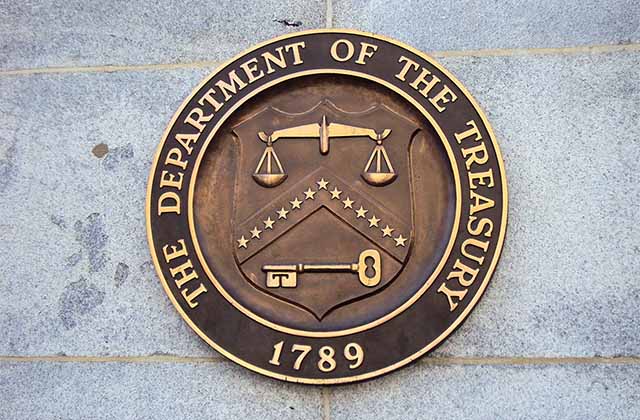Cryptocurrency has been around for a number of years, but it really gained traction and popularity in 2017. It went from being the money of the future to the latest and greatest way to invest and get a great return rather quickly. Initial coin offerings (ICOs) are one of the investments that gained popularity along with cryptocurrency because they go hand in hand.
An ICO is a crowdfunding method that uses cryptocurrency instead of cash. Companies will offer tokens in exchange for a cryptocurrency that they specify. The token can then be used to purchase from that company in the future or can be sold to others. There are already numerous ICOs that are currently active and many that are scheduled for launch.
ICOs offer numerous benefits to both the companies that offer them and those who invest in them. One big benefit to companies that choose to raise funding through an ICO is that ICOs are typically much faster and easier methods of fundraising compared to other, traditional fundraising options. One of the big benefits to investors is that cryptocurrencies are quite liquid and can result in quicker returns and profits.
One of the reasons that ICOs have gained popularity and been such fast and effective ways of raising funds is their lack of regulation. Although, as they grew in popularity, there were some regulations placed on ICOs, they have been relatively unregulated up until now. Rather than having to jump through hoops, fill out paperwork, and see to it that all formalities are followed, and in some cases even ask permission, both those seeking funding and investors alike have been able to get down to business and get deals done more quickly when working through an ICO.
The lack of regulation isn’t all good, though. Because there aren’t any security protocols, and rules and regulations in place, virtually anyone can create an ICO, which means that some ICOs have been accused of being or uncovered as fraudulent. Not only is there a high number of fraudulent ICOs on the market, investors are not protected against fraudulent offerings since there aren’t many rules and regulations, and if they fall victim to a fraudulent ICO, they aren’t able to recoup the investment they have made.
While there are certain signs that investors can watch out for in order to avoid investing in an ICO that is a scam, the lack of regulation means that there may be a higher risk for investors than with other types of investments. That may be changing soon, though.
In 2017, some regulatory bodies were already looking into or working on implementing rules and regulations to help protect both companies offering ICOs and investors. The Commodity Futures Trading Commission (CFTC) designated Bitcoin as a commodity and declared that fraud and manipulation of Bitcoin-related transactions in interstate commerce and the regulation of commodity futures tied directly to Bitcoin. The Internal Revenue Service (IRS) said that Bitcoin must be treated like property for tax purposes. And certain US states intended to approve acceptance and/or promotion of the use of Bitcoin and blockchain.

Other regulatory bodies, like the Department of Treasury, planned to review the Financial Crimes Enforcement Network’s (FinCEN) cryptocurrency practices related to money laundering and terrorism financing risks. The Securities and Exchange Commission (SEC), however, had not approved any exchange-traded products with cryptocurrencies or other related assets for listing or trading.
So, despite a history of little to no regulation, regulatory bodies have begun to look into ICOs and cryptocurrency-related transactions and started to recognize it and treat it as they would cash transactions and deals. What does this mean for ICOs in 2018?
For starters, organizations vying for ICOs in the coming months will need to be prepared to prove the value of their applications beyond just an initial whitepaper. Lena Knysh, the VP of Sales of EGT International Corp believes that this year we will see investors who are more discerning when it comes to backing crypto applications. Knysh says:
Investors are looking for emerging applications that provide more than just a prototype. Especially Series A investors are now strongly favoring companies with product market fit as proven by an existing and growing user or client base.
Her own organization, EGT, has already proven their viability as their proprietary Engagement Tokens fuel Solid Opinion, pay-per-article publishing platform that incentivizes on-site engagement to drive increased value for both publishers and advertisers. “EGT has the advantage of building on existing technologies and a strong base of millions of users who already purchase points to use for platform functions. In addition EGT is closely monitoring the development of blockchains such as EOS for future expansion of the platforms feature set.”

In addition to more judicious investments, we will also see continued enforcement against fraudulent, or even potentially fraudulent, crypto applications launching ICOs. The SEC actually froze the assets of AriseBank earlier this year on suspicion of fraud. The CFTC also took action indicating that we may see certain standards and regulations implemented when they issued subpoenas to the companies Bitfinex and Tether.
Steve Papermaster, CEO of Nano Vision believes that regulatory activity will accelerate throughout the next one to two years. Papermaster says this increase in regulation “will bring certainty and safety to investors and to the market overall, ushering in massive growth in the crypto asset class and spurring innovation from entrepreneurs at unprecedented levels. The Wild West Crypto frontier will be a bit less about gun slinging, instead it will be far more sustainable and trusted by the masses.”
The United States isn’t the only country looking into cryptocurrency, ICOs, and other similar transactions and deals. Some countries have already put regulations in place. Austria, for example, is one that regulates financial services that involve crypto and virtual currencies. Australia is planning to make cryptocurrency transactions subject to registration and regulation later this year. Canada, though, is mostly focusing on addressing anti-money laundering but taking a generally lighter approach to other aspects.
While there may not be a set and defined direction for what and how ICOs will be regulated going forward, regulatory bodies have begun to pay more attention to cryptocurrencies and related transactions as a whole, and the actions they have already taken indicate that they will become more involved.
What do you think the future holds for ICOs and how do you think regulations will affect them? Let us know in the comments below.
Images courtesy of Bitcoinist archives.
The post How Regulations Will Impact ICOs in 2018 appeared first on Bitcoinist.com.

Bitcoinist.com is author of this content, TheBitcoinNews.com is is not responsible for the content of external sites.
Our Social Networks: Facebook Instagram Pinterest Reddit Telegram Twitter Youtube










